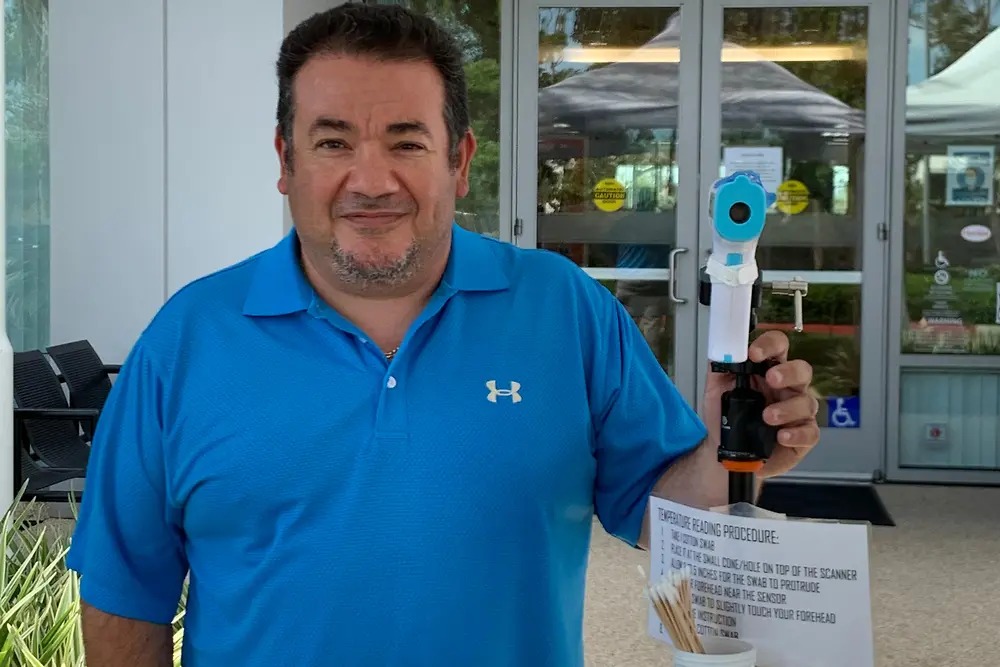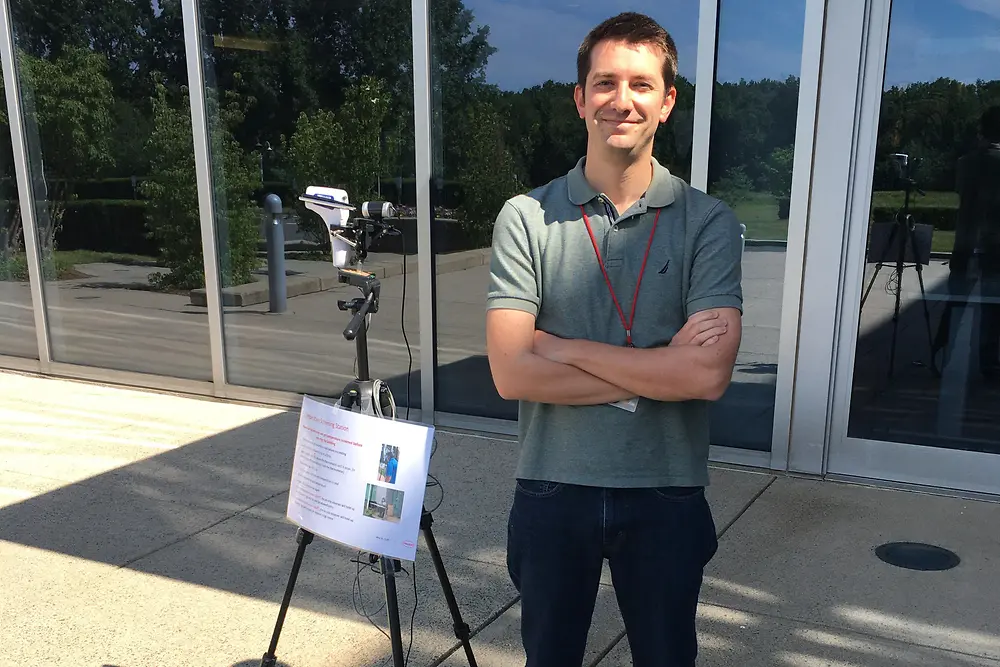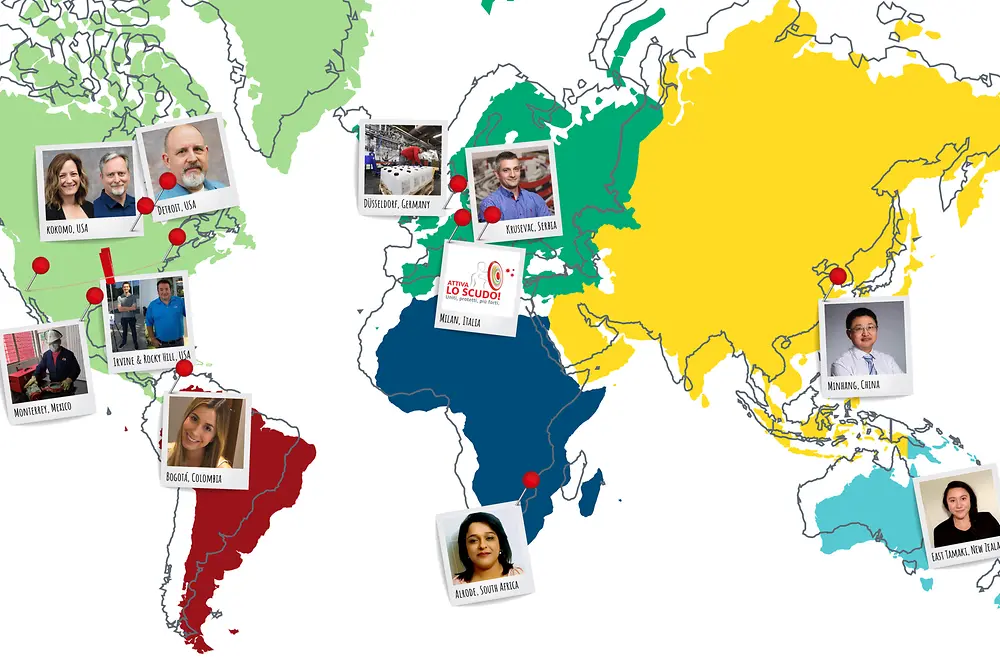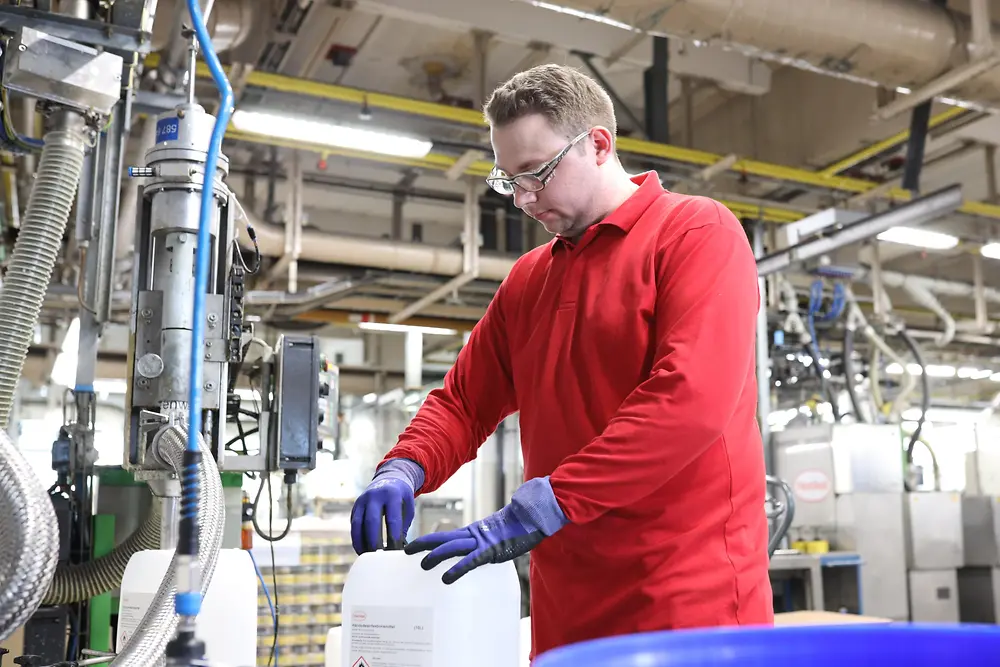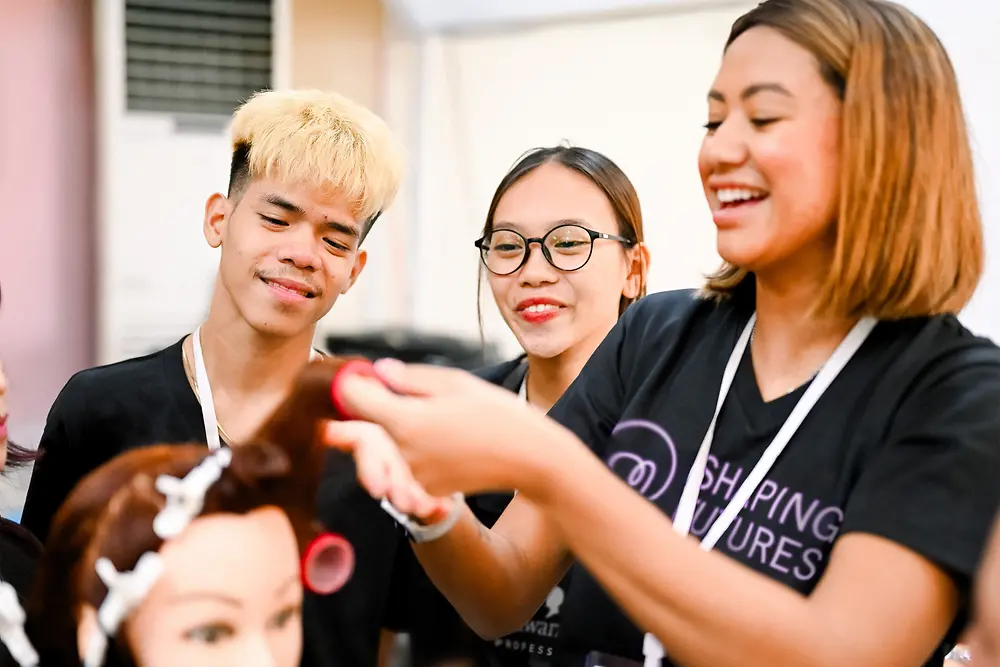Discover the brands and technologies from our business units Henkel Adhesive Technologies and Henkel Consumer Brands.
Innovation for a greater good

If there’s something you need, but it doesn’t already exist, what would you do? Make it yourself! That’s exactly what these two Henkel employees in the US did, when faced with the challenge of screening employees as they entered the sites.
“Necessity is the mother of invention.” Although Plato may not have realized it, his statement still holds true, 1,500 years after his death. Since the beginning of the COVID-19 outbreak, people around the world have invented different processes and procedures to detect and treat those infected. From global to local, it is important to recognize all efforts to slow down the spread of the virus and the people who made these efforts possible.
In North America, sites on both sides of the coast took their detection methods up a notch, by developing processes to test a person’s temperature without crossing the one-and-a-half-meter distance regulations. Inspired to keep their coworkers safe, employees from California to Connecticut devised ingenious solutions to outsmart the coronavirus.
Collaborative innovation
At sites in North America, employees had to get their body temperatures screened before they could enter the work site. This posed a slight problem, since it also meant that they had to break the one-and-a-half-meter social distance protocol. Enter Raffi Krikorian, Facilities Head in Irvine, United States. He developed an original design that attached a thermometer to a tripod and used velcro fastener to secure the trigger. In Rocky Hill, Phillippe Huber, Product Development Equipment Engineer, added a foot pedal to optimize functionality and worked to outfit all offices in the state of Connecticut with functional test rigs.
Because of their quick, creative and solution-oriented thinking, this screening method developed by Adhesive Technologies employees was also used by their colleagues from Beauty Care and Laundry & Home Care at the Stamford, Trumbull and Darien sites.


